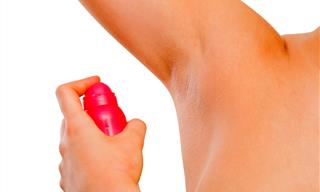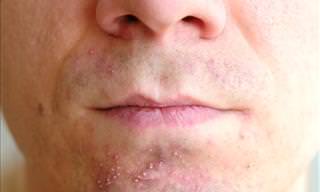Many of us have altered our showering habits since last March. With working from home, and generally staying in most of the time, showering every day just didn’t seem necessary. Well, if you’re reading those lines and thinking ‘that’s me!’, we’re here to tell you there is no need to be embarrassed about spacing out your showers! Not only are you not alone in this, but experts have also confirmed that showering less often is actually the healthier way to go.
"In many parts of the world, taking a shower every day tends to be the norm," says Esteban Kosak, MD. "However, from a strictly medical perspective, it is not necessary for most people to shower this frequently." According to Kosak and other healthcare professionals, if you’re not noticeably grimy or sweaty, you probably don’t need to shower more than a few times a week.
Of course, the frequency of your showers should ultimately depend on your individual daily schedule and occupation, especially amid coronavirus. If you work in the healthcare sector as a doctor, nurse, or paramedic, or as a construction worker and even a plumber, then you should shower daily, as you are in closer contact with bacteria, viruses, and fungi. Besides those certain occupations, you should also shower every day if you regularly exercise, as sweat can cause a rapid increase of bacteria on the skin.
The effect of daily showers
When we realize how the process of showering works, it makes sense that too frequent showers can be harmful. Showering in itself doesn’t remove many germs from your skin. What it does remove are the skin’s natural lipids. In a nutshell, lipids are natural fats found in the skin, which play a crucial role in maintaining the strength of the skin's protective barrier. This barrier holds in moisture, protects the skin from damage, and keeps dirt and impurities out. By showering too often, we create a cycle of stripping even more lipids from the epidermis and worsening the chapping caused by the overly frequent and long showers.

"As a society, we wash way too much, and then we try to limit the damage by applying creams and emulsions that are potentially irritating and allergenic," says dermatologist Sandy Skotnicki. There are only three body parts that should be regularly washed with soap, according to Skotnicki: the armpits, groin, and feet. These spots are home to some of the most sensitive skin on your body and are prone to harboring fungi, have ingrown hairs, and are most likely the location of potentially harmful infections.
The hygienic practices you should never skip
While daily full-body showers are not necessary, there are a few hygiene practices that you absolutely shouldn’t skip or neglect. The most important examples are washing your hands, brushing your teeth, and washing your face.
We all became painfully aware of the importance of handwashing during the pandemic (although it has always been an important practice). It is vital to killing and stopping the spread of germs; furthermore, hand washing can also prevent around 30% of diarrhea-related sicknesses and about 20% percent of respiratory illnesses.

When it comes to brushing your teeth, the American Dental Association strongly recommends doing so every day, twice a day. If you don't, the harmful plaque and bacteria covering your teeth can build up and lead to tooth decay. Check out our previous article to find out how to keep your toothbrush truly clean.
Finally, your face should also be washed twice a day - once in the morning and once at night. You encounter many elements throughout the day, which may clog your pores and lead to breakouts, irritation or infections from bacteria and viruses. As long as you maintain these three hygiene practices, you can definitely allow yourself to skip a shower or two, and still stay healthy and kind to your body.
If you found this article useful, why not share it with family and friends?
 Go to BabaMail
Go to BabaMail



























